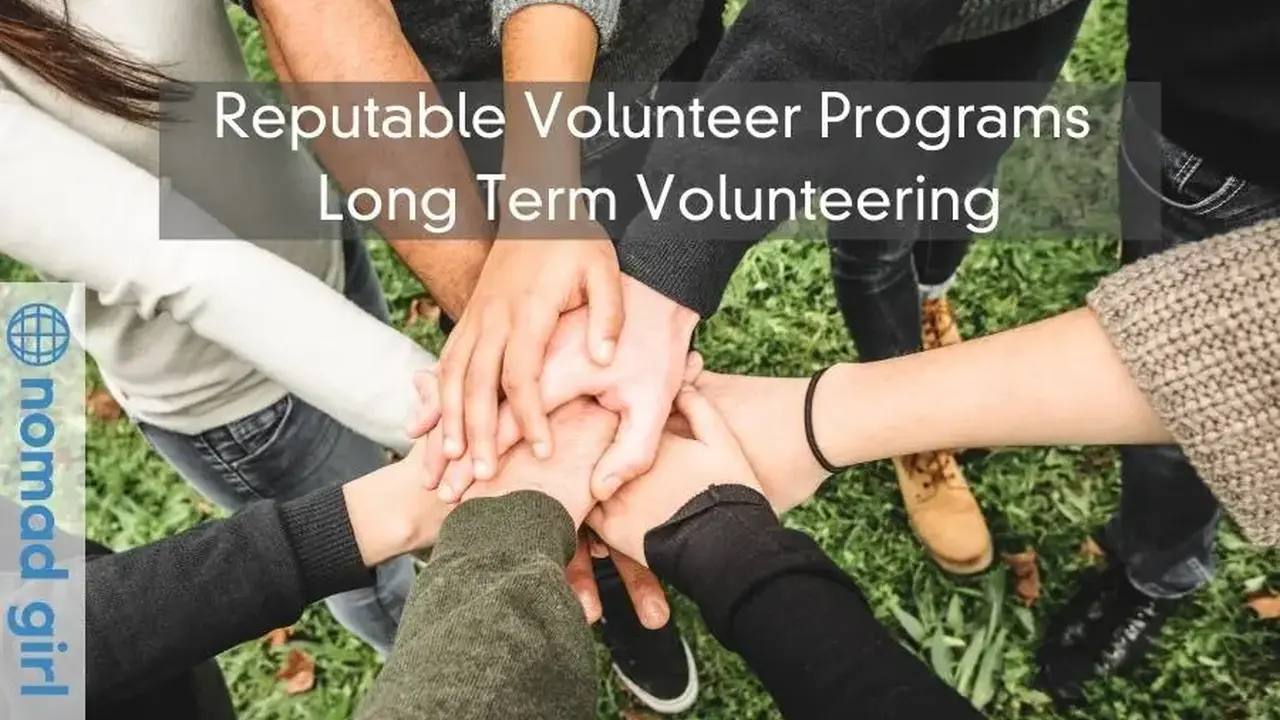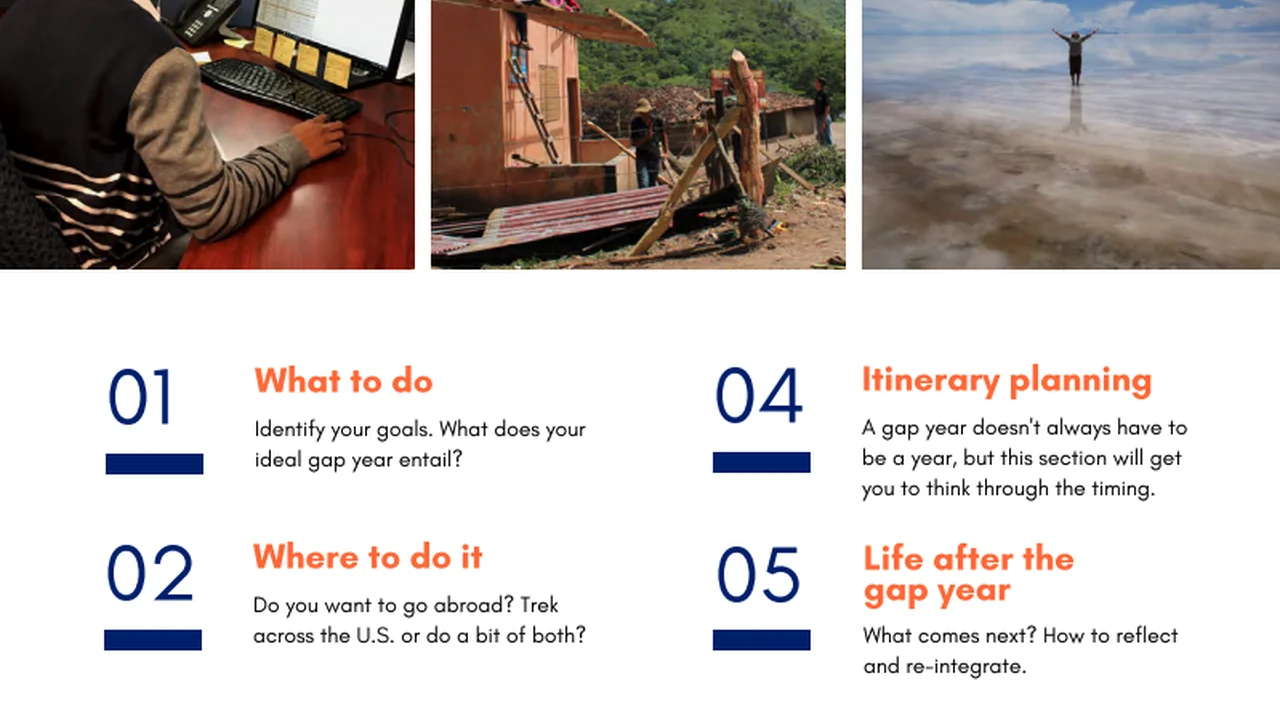Finding Reputable Volunteer Programs
Learn how to identify reputable volunteer programs abroad for your gap year. Check for transparency, impact measurement, and ethical practices. Make a positive contribution to communities in need.

Why Reputable Volunteer Programs Matter Finding Ethical Volunteer Opportunities
So, you're thinking about volunteering abroad during your gap year? Awesome! It's a fantastic way to see the world, make a difference, and grow as a person. But before you jump in, it's super important to make sure you're choosing a reputable volunteer program. Why? Because not all programs are created equal. Some are genuinely focused on helping communities, while others… well, let's just say they're more about making a profit or looking good on paper. We want to find ethical volunteer opportunities that actually contribute to positive change.
Choosing the right volunteer program can be a minefield. You need to be a detective, looking for clues that tell you whether a program is the real deal or just a \"voluntourism\" trap. Voluntourism, by the way, is when volunteering is more about the experience for the volunteer than the actual benefit to the community. We want to avoid that!
Transparency is Key Unveiling Program Operations
Transparency is a huge red flag if it's missing. A reputable organization will be upfront about where your money is going, what the program's goals are, and how they measure their success. Think of it like this: would you invest in a company that wouldn't show you their financial statements? Probably not. Same goes for volunteer programs.
Look for programs that clearly state their mission, values, and goals. Do they have a website that's easy to navigate and provides detailed information? Can you find information about their leadership team and their experience? Are they open about their partnerships with local organizations? These are all good signs. And don't be afraid to dig deeper! If something feels vague or unclear, ask questions. A reputable program will be happy to answer them.
Impact Measurement Proving Positive Change
How does the program know it's actually making a difference? Impact measurement is crucial. A good program will have systems in place to track their progress and evaluate the effectiveness of their projects. They should be able to show you concrete results, not just feel-good stories.
Look for programs that use data to track their impact. Do they conduct surveys or interviews to gather feedback from the community? Do they monitor key indicators like school enrollment rates, access to clean water, or improvements in health outcomes? A reputable program will be able to demonstrate how their work is contributing to long-term sustainable development. They will also be able to explain how they are adapting their strategies based on the data they collect.
Ethical Practices Avoiding Voluntourism Traps
This is where things get really important. Ethical volunteering means respecting the local culture, working in partnership with the community, and ensuring that your actions are not causing harm. It means avoiding projects that exploit vulnerable populations or take jobs away from local workers.
Be wary of programs that focus on short-term projects that don't address the root causes of problems. For example, building a school in a community without also providing teacher training or resources for ongoing maintenance might seem helpful in the short term, but it's not a sustainable solution. Look for programs that work with local leaders to identify community needs and develop long-term strategies for addressing them.
Also, avoid programs that involve working with children in orphanages unless you have specific skills and training. Spending a few weeks playing with kids in an orphanage might seem like a nice thing to do, but it can actually be harmful to their emotional well-being if they are constantly forming attachments with volunteers who come and go. If you're interested in working with children, look for programs that support education, healthcare, or family support services.
Red Flags Spotting Problematic Programs
So, what are some specific things to watch out for? Here are a few red flags that might indicate a program is not reputable:
- High fees: If a program charges exorbitant fees without clearly explaining how the money is being used, be suspicious.
- Focus on selfies: If the program's website and social media are filled with pictures of volunteers posing with local people, rather than highlighting the work they're doing, it's a bad sign.
- Guaranteed results: No reputable program can guarantee specific outcomes. If a program promises to \"solve poverty\" or \"end hunger\" in a short period of time, it's probably too good to be true.
- Lack of local involvement: If the program is run entirely by foreigners without any input from local communities, it's likely not sustainable or culturally sensitive.
- Unqualified volunteers: If the program allows anyone to volunteer, regardless of their skills or experience, it might not be providing quality services.
Product Recommendations and Comparisons for Pre-Departure Preparation
Okay, so you've found a reputable program. Great! Now, let's talk about some products that can help you prepare for your volunteer experience. These are focused on ensuring you can thoroughly vet potential organizations.
VPN Services: NordVPN vs. ExpressVPN vs. Surfshark
Why you need it: When researching volunteer programs online, especially if you're using public Wi-Fi, a VPN (Virtual Private Network) helps protect your data and privacy. It encrypts your internet traffic, making it harder for hackers to steal your information, like credit card details or passwords. It also allows you to access websites that might be blocked in certain regions.
Product Comparison:
- NordVPN: Known for its speed and security features. Offers a wide range of servers and a strict no-logs policy. Great for accessing content from different regions. Price: Around $3.49/month for a 2-year plan.
- ExpressVPN: Another top-tier VPN with excellent speed and reliability. Easy to use and offers strong encryption. Price: Around $8.32/month for a 1-year plan.
- Surfshark: A budget-friendly option that still provides good security and speed. Allows unlimited device connections, which is great if you have multiple devices. Price: Around $2.49/month for a 2-year plan.
Usage Scenario: Imagine you're in a café in Southeast Asia, using public Wi-Fi to research volunteer programs. A VPN encrypts your connection, protecting your data from potential hackers on the same network. You can also use it to access your bank account or other sensitive information securely.
Background Check Services: GoodHire vs. Checkr
Why you need it: Before committing to a volunteer program, especially one involving vulnerable populations, it’s wise to conduct a background check on the organization and key personnel. While you may not have direct access to perform these checks yourself, understanding the process can help you assess the program’s rigor in screening its staff.
Product Comparison: These are typically used by businesses, but understanding their features helps you evaluate how seriously a volunteer organization takes safety.
- GoodHire: Offers comprehensive background checks, including criminal records, identity verification, and employment history. Known for its user-friendly interface and compliance features. Price: Varies based on the scope of the check, but typically starts around $29.99 per check.
- Checkr: Another popular background check service known for its speed and accuracy. Integrates well with various HR platforms. Price: Similar to GoodHire, varying based on the type of check and volume.
Usage Scenario: A reputable volunteer program should have a policy of conducting background checks on its staff and volunteers, particularly those working with children or vulnerable adults. Ask about their screening process and what types of checks they perform.
Reverse Image Search Tools: Google Images vs. TinEye
Why you need it: Often, organizations might use stock photos or images taken from other websites to represent their work. Using reverse image search tools can help you verify the authenticity of the images on a volunteer program’s website.
Product Comparison:
- Google Images: Free and widely accessible. Simply upload an image, and Google will show you where else that image appears online.
- TinEye: Specifically designed for reverse image searches. It can identify altered or manipulated images.
Usage Scenario: You see a photo of volunteers building a well on a program's website. You can use Google Images or TinEye to see if that same photo appears on other websites, which might indicate that it's a stock photo or that the program is using someone else's work without permission.
Website Analysis Tools: BuiltWith vs. SimilarWeb
Why you need it: These tools can help you understand the technology behind a volunteer program's website, including the platform it's built on, the plugins it uses, and its traffic sources. This can give you insights into the program's resources and online presence.
Product Comparison:
- BuiltWith: Provides detailed information about the technologies used to build a website, including content management systems, analytics tools, and advertising platforms.
- SimilarWeb: Offers insights into a website's traffic, engagement, and audience demographics. It can help you see how popular a program is and where its visitors are coming from.
Usage Scenario: You can use BuiltWith to see if a program's website is built on a reputable platform like WordPress or Squarespace, and if it uses security plugins. You can use SimilarWeb to see how much traffic the website gets and where its visitors are located. A program with high traffic and a global audience is likely more established and reputable.
Asking the Right Questions During the Application Process
Don't be afraid to ask questions! A reputable program will be happy to answer your questions and provide you with detailed information. Here are some important questions to ask:
- What are the program's goals and objectives?
- How does the program measure its impact?
- What are the qualifications and experience of the staff?
- What kind of training and support will I receive?
- What are the safety and security protocols?
- How does the program work with the local community?
- What are the accommodation and food arrangements?
- What are the costs involved and what do they cover?
- What happens if I have a problem or emergency?
By asking these questions and doing your research, you can increase your chances of finding a reputable volunteer program that will provide you with a meaningful and rewarding gap year experience. Good luck!
:max_bytes(150000):strip_icc()/277019-baked-pork-chops-with-cream-of-mushroom-soup-DDMFS-beauty-4x3-BG-7505-5762b731cf30447d9cbbbbbf387beafa.jpg)






